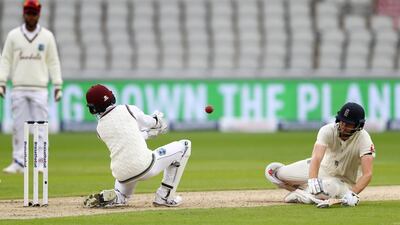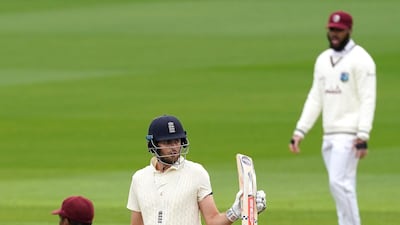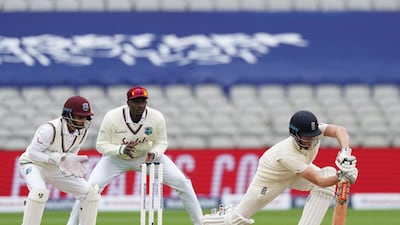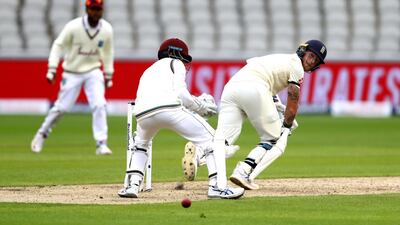If only Barnard Castle was on the route from Southampton to Manchester, maybe he’d have gotten away with it.
As it was, Jofra Archer could not make any excuses about impromptu eye tests, or anything else.
Given how much in terms of finance is invested in this summer of English cricket, bio-security, needless to say, is paramount.
Everyone involved in the “lockdown series” between England and West Indies should be well enough briefed on what is expected of them.
They have been given a 74-page booklet on the safety protocols. Accreditation passes apparently have tracking beacons installed to check where participants have been within the grounds.
The only space in which Big Brother is not watching is that when travelling between grounds.
But that, too, has been set out by the safety planners. England’s players were left to travel in their own cars for the 370kms between the first and second Test venues.
They were given a list of recommended places to fill up with petrol or take comfort breaks.
Safe to assume they did not include a 90km detour along the south coast to Archer’s flat in Hove.
Having done so, he was forced to sit out the Test match and self-quarantine in his room for five days.
He probably will not need encouraging to keep his curtains drawn, given what he will be missing out on the other side of his windows.
Maybe it does feel a little stifling for those involved. But as the England and Wales Cricket Board’s safety manager was quoted as saying ahead of the series, “when this is all over we would prefer people to say this was a massive overreaction than the other way around.”
As such, Archer’s errant journey was never likely to be met with leniency.
On the morning of the second Test, he issued a mea culpa via an ECB press release, saying: “I have put, not only myself, but the whole team and management in danger.”
________________
Archer out













________________
It was said that West Indies, who have earned widespread praise for accepting to come to a Covid hotspot for this series, accepted the measures that had been imposed.
You might have thought, given the kerfuffle, that driving would have been banned for England players thereafter.
And for the most part it was, especially when the heroically dogged Dom Sibley was on strike on day of the Manchester Test on Thursday. Most shots, other than the nudge off the pads into the legside, were off his agenda.
Joe Root, though, rivalled Archer for least judicious drive of the week, when he aimed a booming one at Alzarri Joseph and was caught at slip.
Sure, there was mitigation for Root’s lapse. It was his first game back since before lockdown started.
He had been out of sync before that anyway, plus his mind might have been elsewhere, seeing as he is newly arrived from paternity leave.
He might have been extra vigilant, though, given the identity of the bowler.
Joseph is the least heralded of the Windies pace attack, but he has had Root’s number just lately.
It was the fourth time in five innings in matches between these sides that he has dismissed the England captain.
The home team were in trouble at that stage, on 81-3 when Root went, and with scoring proving tough.
Surprisingly, given they were invited to bat first on a gloomy morning against a vaunted pace attack, the first two wickets had fallen to spin.
Roston Chase’s off-spin again befuddled English batsman, and he was on a hat-trick either side of lunch.
First he had Rory Burns lbw for 15. Then, on the first ball after the interval, Zak Crawley worked a simple catch into the hands of Jason Holder at leg slip.
Through it all, Sibley clung to the crease limpet-like. It took the opener 164 balls to get to 50, but it was just what his side required in the circumstances.
It was clearly appreciated by Root, who beat his applause on the window of the dressing room when Sibley reached the milestone.
He was joined in the recovery process by Ben Stokes, who navigated his ongoing duel with Holder to share in a half-century stand with Sibley.















